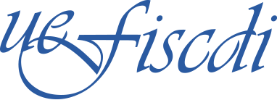QuCoS
Quantum Computation with Schrödinger cat states
This project seeks to establish a radically new, alternative approach to realizing the fundamental building blocks of quantum computers with superconducting qubits. In the next 3 years, we plan to employ only a handful of realistic components to realize robust error-corrected logical quantum bits.
We aim to demonstrate the same level of protection provided by a few hundreds of qubits (with properties beyond the state of the art) in today’s mainstream approach of the so-called surface code architecture. Our alternative approach is known as cat codes, because it employs multiple interconnected high coherence cavity modes with non-linear dissipation, to encode a qubit in superpositions of Schrödinger cat states. Our project combines realizing the quantum processor architecture as well as the control system and the protocols that drive it, building towards a full-stack error-corrected quantum computer.
The partners in our collaboration form a strong synergetic group that has the full range of expertise needed to design and realize these systems, and to obtain these challenging goals. Furthermore, all partners of our project, including both industry and academia, have worked together and published works in the fields of quantum computing and quantum information processing. We aim to implement error protected qubits, fault tolerant operations, and demonstrate the scalability of this approach by realizing a repetition code. Our project will enable quantum experiments towards the ambitious and well-defined goal of constructing a logical qubit, on which we can perform gates, and most importantly, quantum error-correctio (QEC). All algorithms with theoretically proven quantum speedup require QEC, therefore, with this project we are realizing an essential building block of a European error corrected quantum processor.
CONSORTIUM
- Coordinator: Gerhard Kirchmair (University of Innsbruck, AT)
- Benjamin Huard (Ecole Normale Superieure de Lyon, FR)
- Zaki Leghtas (Ecole Normale Superieure de Paris, FR)
- Ioan Pop (Karlsruher Institut fur Technologie, DE)
- Yonatan Cohen (Quantum Machines, IL)
- Luiza Buimaga-Iarinca (National Institut for Research and Development of Isotopic and Molecular Technologies, RO)
MID-TERM REPORTING: Presentation of the mid-term results of the project





